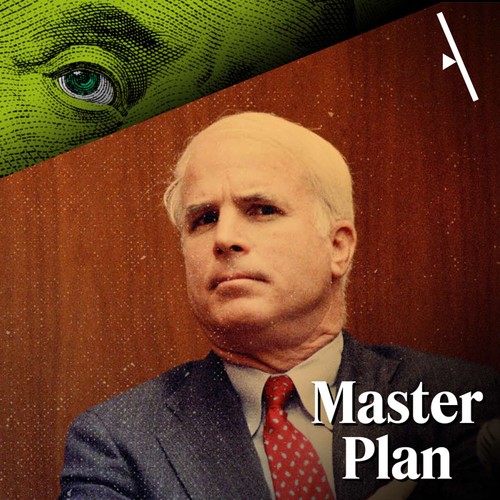
 Master Plan
Master Plan The Maverick
6 snips
Sep 24, 2024 A tense meeting reveals how money drastically sways U.S. politics, especially during the Keating Five scandal. The podcast vividly highlights the intertwining of campaign finance and ethics, illustrating the challenges of reforming a system riddled with loopholes. As it narrates the efforts of figures like John McCain and grassroots advocates, the struggle against ingrained corruption comes alive. Certain events, like the Enron scandal, further complicate the landscape, underscoring the critical need for transparency and integrity in elections.
AI Snips
Chapters
Transcript
Episode notes
Senators' Secret Pressure Tactics
- Four U.S. senators ambushed regulator Ed Gray to pressure him on behalf of Charles Keating.
- This secretive, intimidating meeting was an attempt to derail new regulations on risky loans by Lincoln Savings and Loan.
Money Drives Political Influence
- Money powerfully influences politics, enabling figures like Keating to buy favors with senators.
- The 1980s' regulatory fights reflected a broader era of legalized corruption and campaign finance loopholes.
McCain's Early Political Ties
- John McCain's military heroism and family background aided his early political career.
- Charles Keating was a close friend and a key financial backer of McCain's campaigns.
